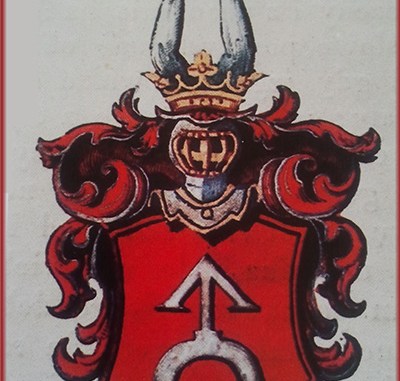Hi,
It's unbelievable people are still fascinated with nobility and buy silver because of family crests.But it's not for me to judge.
The facts:
Approximately 9,000 families were awarded about 15,000 coats of arms. Many families were awarded multiple coats of arms, some up to 20.
There are approximately 550 different coats of arms in the Polish Nobility system.
This is
Ogończyk coat of arms (Poland).186 Polish and Lithuanian families were awarded the Ogonczyk Coat of Arms by Polish kings.
Meaning,there are 186 families as potential candidates for original owners of this knife and fork.
Description:
Gules, half an argent arrow heading upwards, supported by half of a ring. Out of the crest coronet two bare maiden hands (sometimes armed hands), holding a ring, all proper.
Regards







